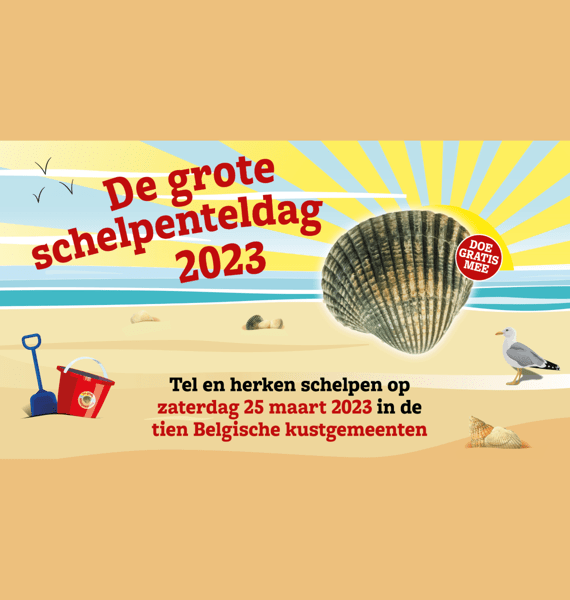Big Seashell Survey 2023
Home | Events | LifeWatch Belgium | Big Seashell Survey 2023

LifeWatch Belgium invites you on Saturday 25 March 2023 to one of the 10 coastal municipalities along the Belgian coast for the sixth Belgian Big Seashell Survey. On that day, hundreds of amateur scientists and citizens will determine which shells have washed up on the beaches. This can give us a better picture of the changes in marine life in the Belgian part of the North Sea. Like effects of climate change, human constructions, or the arrival and spreading of non-indigenous species…
You will be collecting shells, admiring them and trying to figure out what species they are. At the same time, you will also give science a boost. In each of the ten coastal municipalities, shell experts will help you collect and identify your hundred beach shells at the counting stations between 10 a.m. and 4 p.m. When hundreds of enthusiasts do so, we all learn a lot more about these fascinating marine animals. Experienced or not, anyone can become a (marine) scientist for one day!
On site, there are also some fun activities tailored to children (in Dutch only). More information at www.groteschelpenteldag.be (in Dutch only).
The Big Seashell Survey goes international!
The Netherlands and northern France will also be using the same technique on Saturday 25 March. Will we find the same shells in northern France as in Belgium or the Netherlands? The Big Seashell Survey is an initiative of the Flanders Marine Institute (VLIZ), the Province of West Flanders, EOS magazine, the Strandwerkgroep, Natuurpunt, Kusterfgoed and the coastal municipalities.